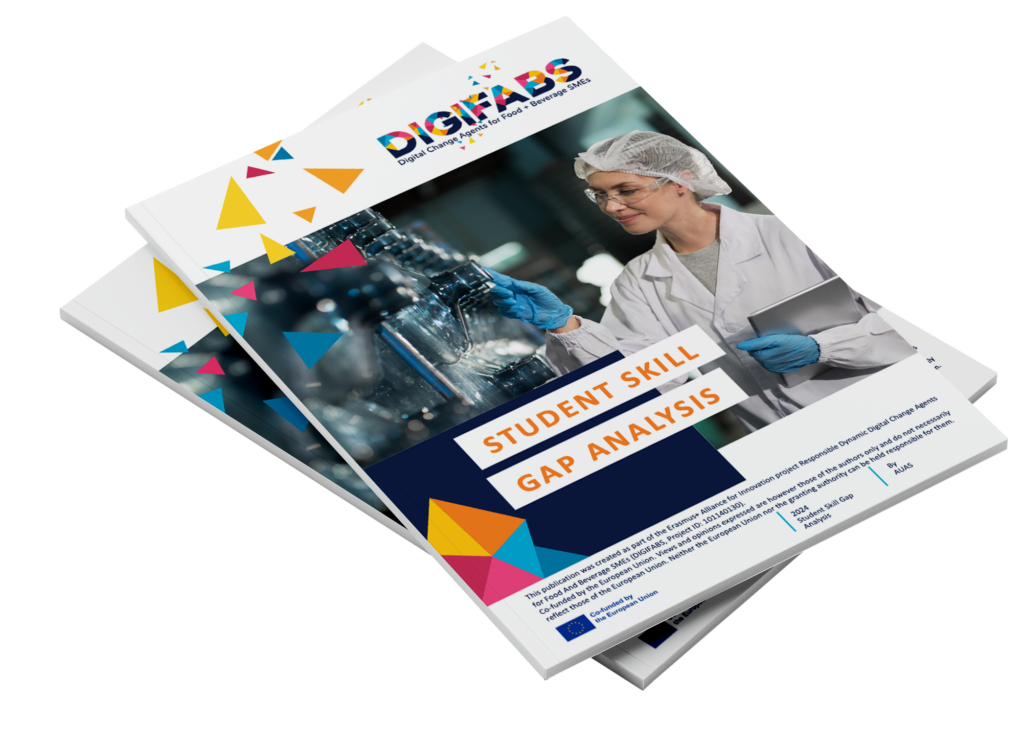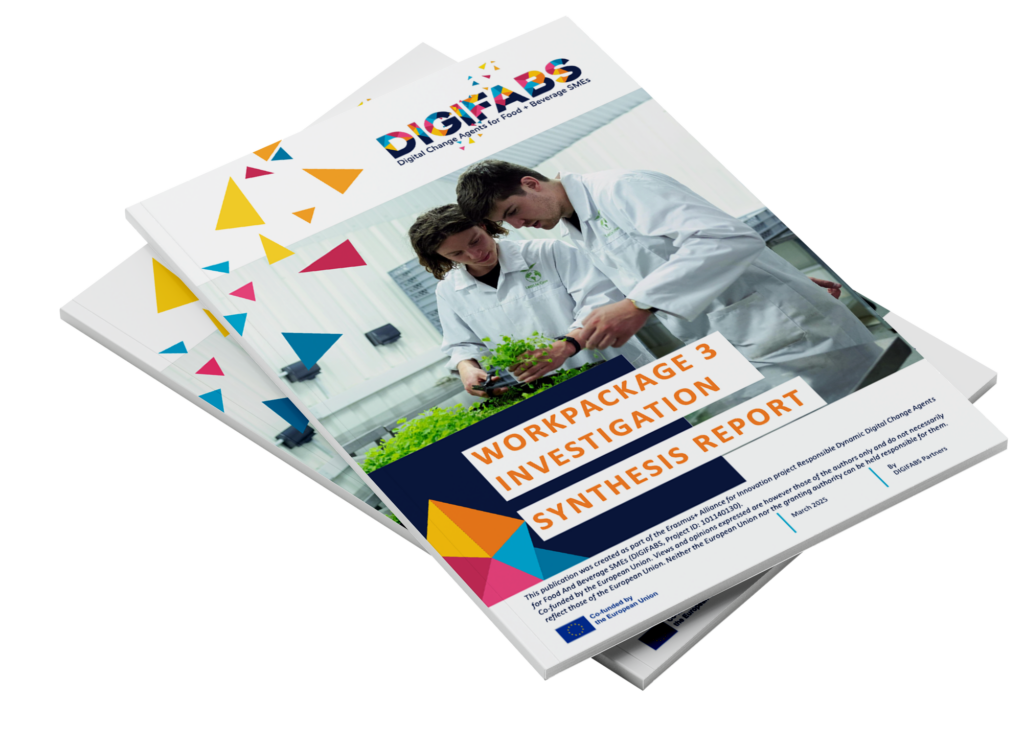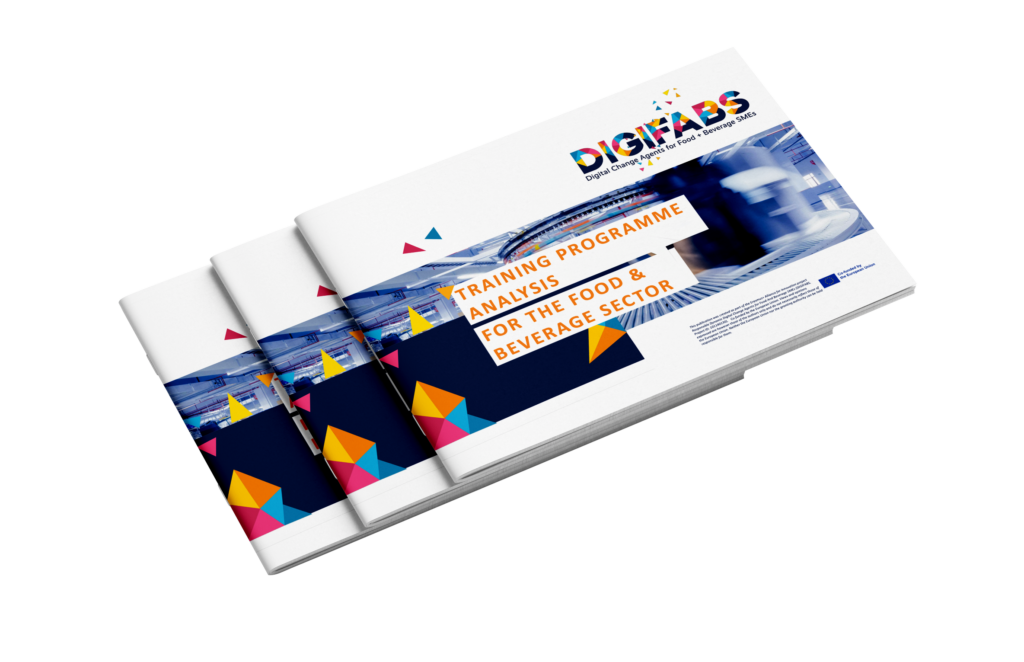Through research, innovation, practical training, and knowledge sharing, DIGIFABS builds a bridge between industry and academia, improving teaching methods, student employability, and SME competitiveness. In this section, the most important results and findings are highlighted, reflected from a theoretical point of view, and analyzed in terms of their implications, linked to existing research and a holistic overview of key findings and best practices to support digital transformation in the food and beverage sector is provided.
Despite being the largest manufacturing sector in the EU, the food and beverage sector lags over 20% behind in adopting new technologies. With pressing challenges such as climate change, shifting labor markets, economic instability, and disruption from global crises, the need for integrated digital solutions has never been greater. Our research emphasizes crucial skill areas essential to digital transformation: green skills for sustainable practices, digital skills in automation, AI, IoT, and data-driven decision-making, methodological, personal, and social skills such as critical thinking and leadership, and resilience that ensure adaptability in an evolving industry.

This report identifies key skill gaps between students’ self-assessed competencies and the skills prioritised by SMEs and educators.

This report is based on a systematic literature review and interviews with key stakeholders. The literature review included 96 scientific papers that examined aspects of digital maturity, digital transformation models, and maturity frameworks for SMEs in the F&B sector.

This report, in the form of a mini case collection with 20+ cases, highlights successful digitalisation efforts through training programmes within the F&B sector and, more generally, SMEs.